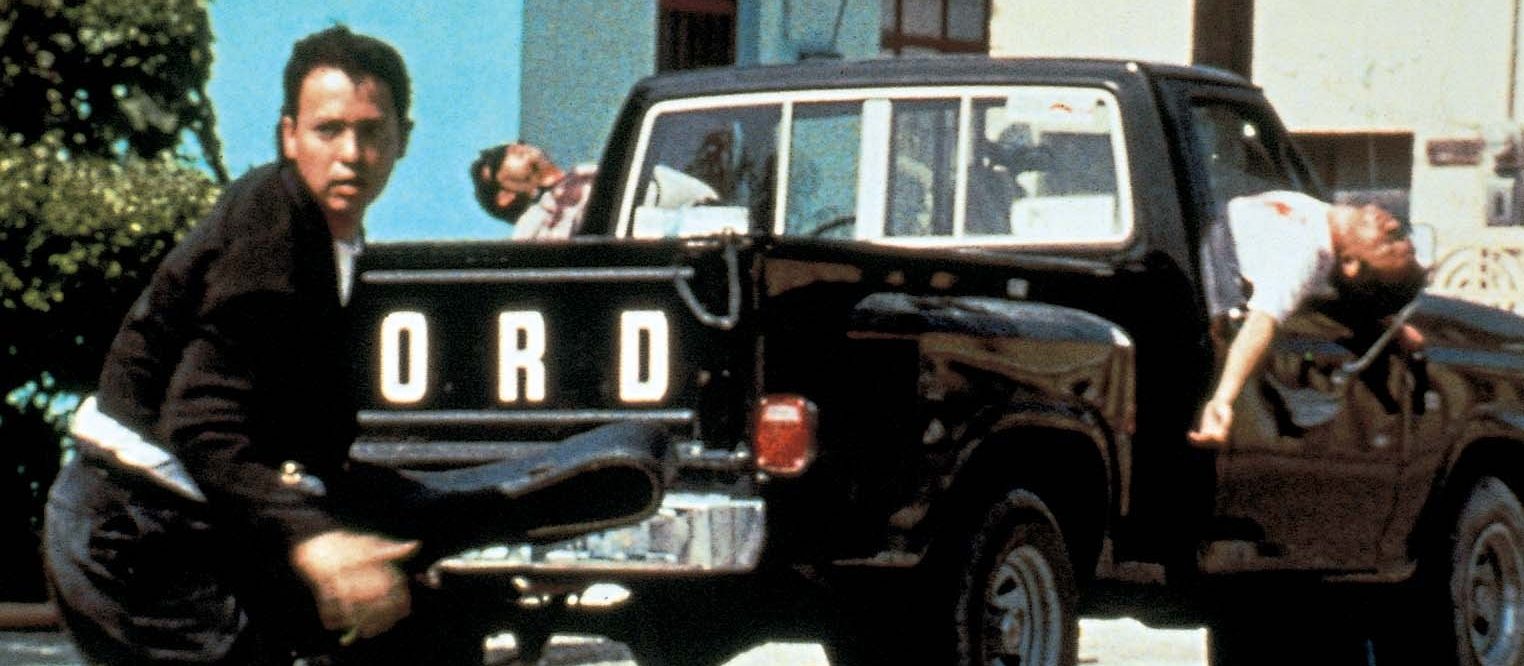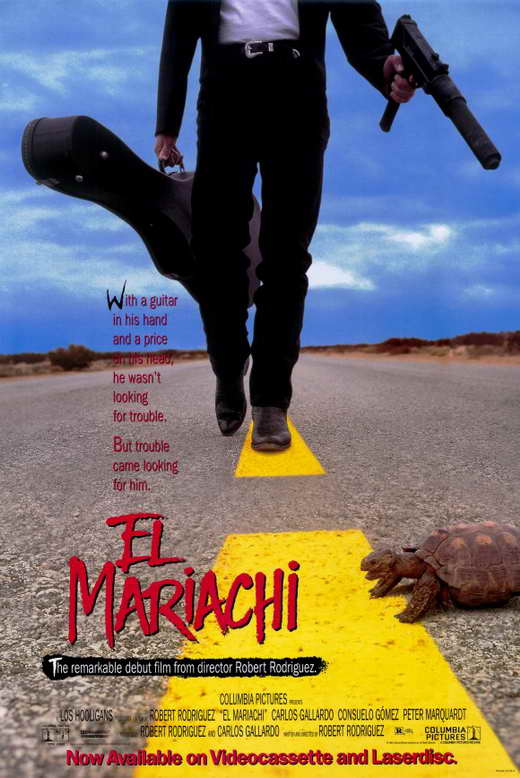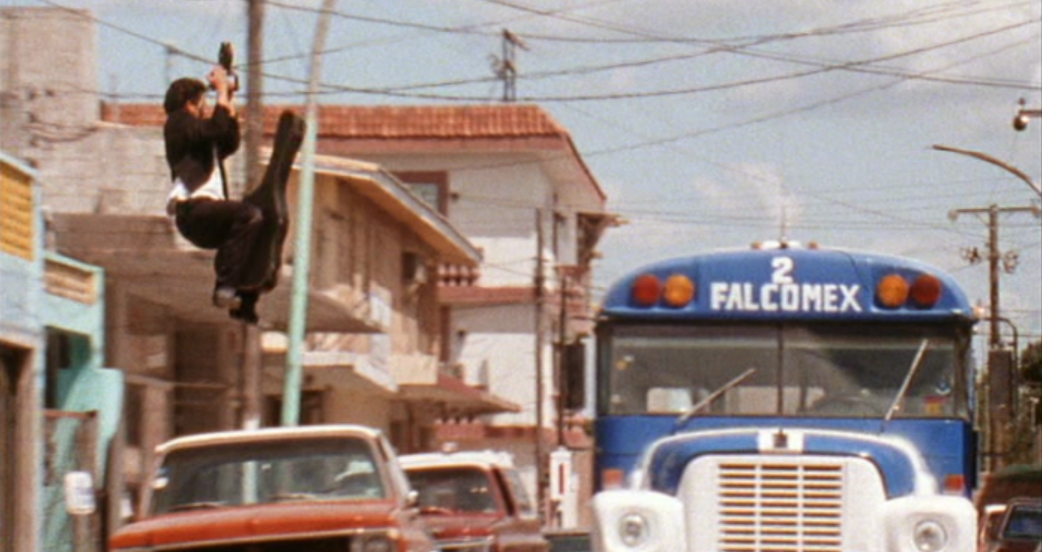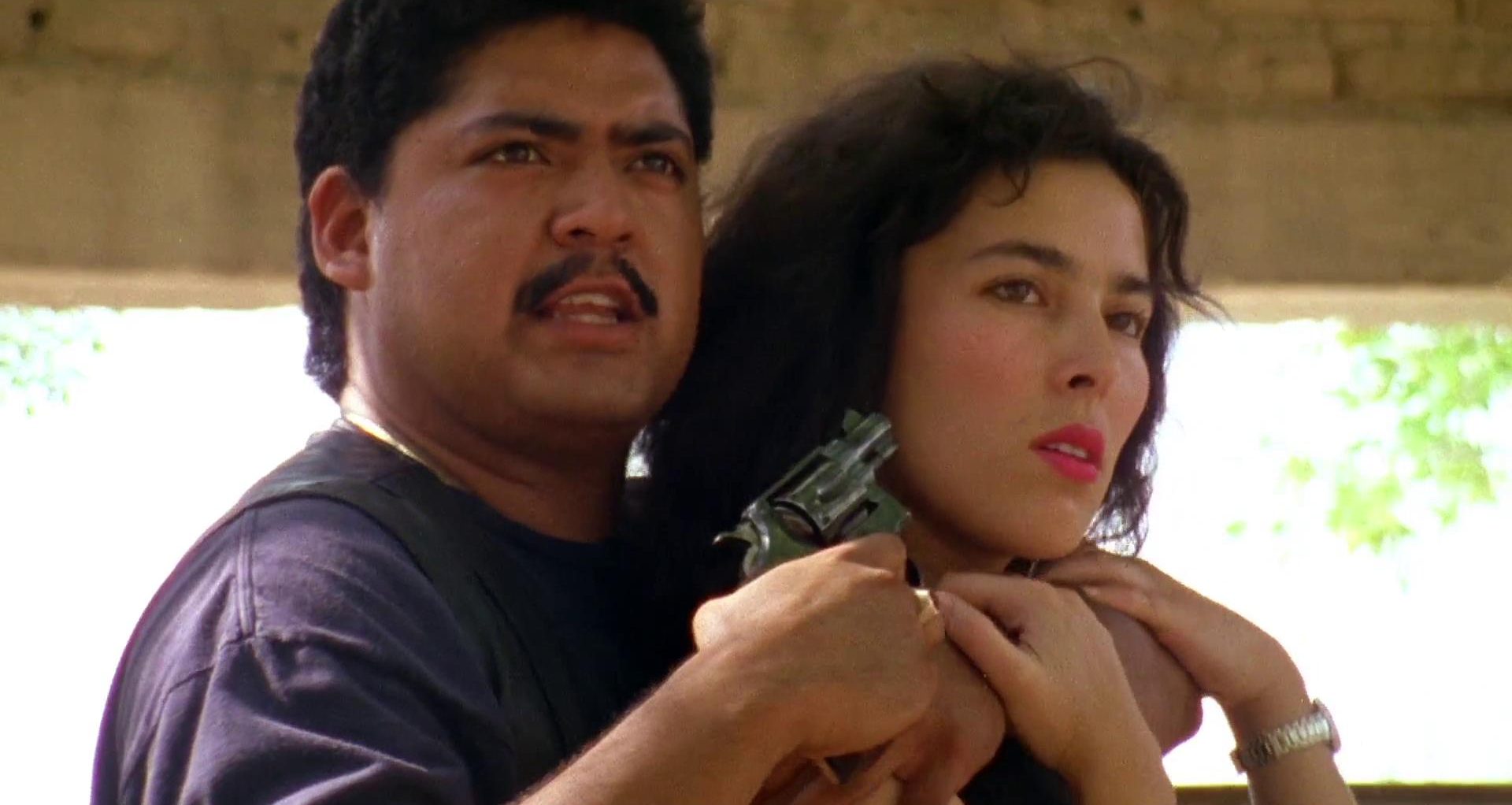

“That morning was just like any other. No love. No luck. No ride. Nothing changes.”
Robert Rodriguez certainly had ambitions when, as a precocious 23-year-old Texas kid, he set out to make a feature film for $7000. However, importantly, those ambitions were not caught up in the modest project itself, which he treated less as a real movie than as a self-taught hands-on course in film production; a practice round intended for the direct-to-television market in preparation for a proper debut. But even though El Mariachi is unpolished and marked by numerous low-budget inclusions that would drive a perfectionist up a wall, the director’s bootstrapping enthusiasm for his craft jumps off the screen like a feral animal.
His camera is rarely still but never calculated in its movement. There’s a restless energy to his shooting style; a hyperactive giddiness that is somewhat overbearing but exciting all the same. Wide-angle lenses, unorthodox camera placement, wild zooms, sped up footage, slow motion. He renders even mundane things like the purchase of a bottle of beer as heightened action sequences, and his action set pieces are superb considering the limited resources (there’s one where the main character ziplines from a balcony onto a moving bus that is particularly nifty). It’s almost unbelievable when he finally settles on static framing for a musical performance. But this isn’t the nauseating shaky cam gibberish that has come to dominate mainstream action films over the years. Rather, although erratic in its emphases, it’s well choreographed and constructed but unfussy about minute details.
It was that sense of improvisational kineticism that comes so naturally to Rodriguez that caught the eye of Columbia Pictures, who not only offered the filmmaker his next gig (Desperado, a pseudo-sequel/remake of El Mariachi with established stars) but also decided to release his homemade debut theatrically when a 35mm print with remixed stereo sound was an unexpected hit at several festivals.

The film stars Carlos Gallardo as a nameless itinerant mariachi who enters a small town looking to ply his trade. Like his forefathers, he plans to travel around the country, collecting experiences and friends while honing his craft. He’d also like to make a living, if he can, but this seems unlikely due to the proliferation of cheap full-band synthesizers. At the same time, a ruthless gangster nicknamed Azul (Reinol Martinez) has broken out of prison aiming to take revenge on a local drug lord, Moco (Peter Marquardt), who had double crossed him some time ago. To this end, the escaped mobster carries a faux guitar case that houses a collection of lethal weapons—several pistols, a submachine gun, brass knuckles, knives. Unfortunately for the mariachi, when Moco sends his henchman out from his villa to track down and kill Azul, the description he gives them matches both men. And so the mariachi finds himself caught in the middle of a nasty blood feud, his predicament made worse when he dispatches four goons in self-defense and then captures the heart of Moco’s woman (Consuelo Gómez) by playing an improvised song at knifepoint while sitting nude in a bubble bath.

For better or worse, El Mariachi has been overshadowed by its own mythology—Rodriguez submitting himself to experimental drug testing to raise his own production budget; serving as producer, screenwriter, director, cinematographer, editor, and special effects supervisor; manufacturing frugal shortcuts to production value by making homemade squibs, using a second hand wheelchair used as a dolly, deftly re-using props; transferring to video for editing; casting locals in small parts; favoring a single take and shooting in sequence; mimicking a multiple-angle shoot by stopping scenes mid-action to move the camera; &c. This inspiring feat is documented in the filmmaker’s self-penned Rebel Without a Crew, a first-person account of the entire process from conception to distribution loaded with juicy tidbits (like his disappointment, upon viewing John Woo’s The Killer, that he didn’t have more money to sink into squibs). Taken together, the film and book are enough to cement the director’s legacy as an icon of independent filmmaking.
Sources:
Morrow, Justin. “Robert Rodriguez on How to Get Production Values for $0”. No Film School. 28 December 2015.